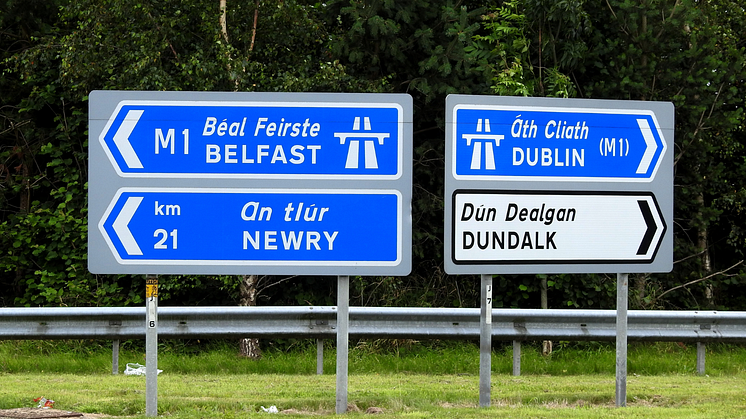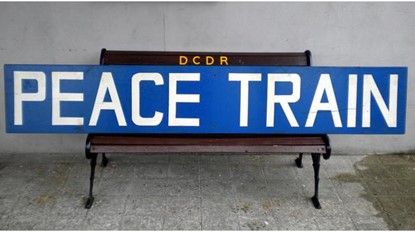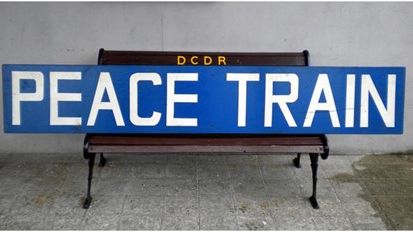
Press release -
Unsung heroes of the Northern Ireland peace process to be recognised
New research will shine a light on the vital role that civil society organisations played in the Northern Ireland peace process.
While much of the work in the lead up to the Good Friday agreement has been attributed to politicians, academics Dr Connal Parr and Dr Stephen Hopkins believe grassroots groups were also key to bringing about an end to The Troubles.
They have been awarded funding through the Irish Government’s Reconciliation Fund to investigate the true extent of the impact of civil society groups.
They are now calling for anyone who played an active role in working towards peace in Northern Ireland in the late 1980s and 90s to come forward and tell their story as part of their research.
Dr Connal Parr, Assistant Professor in History at Northumbria University, said: “The conventional view has always been that it was Prime Ministers and other politicians who brought about peace - but we know there was a lot of work going on at a grass roots level which has been mostly overlooked up until now. The aim of this project is to shine a light on those people and groups and record their stories and experiences.”
The research project, Paving the Path to Peace: Civil Society and the Northern Ireland Peace Process, 1989-1998, will involve hearing from members of the campaign group the Peace Train Organisation.

Set up in 1989 in protest at the repeated bombing of the Dublin to Belfast railway line by the Provisional IRA, the group hired a train, carrying hundreds of people from all over Ireland, to travel across the border in a symbolic gesture.
During a witness seminar event, due to take place in March next year, members of the group will discuss their work in bridging social and cultural movements during that time.
The witness seminar will be followed by a conference in May, during which members of a wide variety of civil society groups, including the Shankill Women’s Centre, the West Belfast Festival/Féile an Phobail, the John and Pat Hume Foundation, the Irish Congress of Trade Unions, Healing Through Remembering, the Maydown Ebrington Group, and the WAVE Trauma Centre, will share their experiences.
The evidence gathered at the witness seminar will be recorded in a pamphlet, while the talks from the conference will be published in a book, creating a lasting record for the future.
Speaking about the timing of the project, Dr Parr said: “In the context of strained British-Irish official relationships since 2016, this project will underline the importance of open dialogue and peace-making, with a focus upon the significance of creative inputs from civil society across these islands.”
Dr Connal Parr is Assistant Professor in History at Northumbria University. His first book Inventing the Myth: Political Passions and the Ulster Protestant Imagination (2017) was shortlisted for the Ewart-Biggs Literary Prize and the Royal Historical Society's Whitfield Prize for distinguished first books. He is a board member of Etcetera Theatre Company and is currently completing a book on the Irish Anti-Apartheid Movement.
Dr Stephen Hopkins is Lecturer in Politics in the School of History, Politics and International Relations at the University of Leicester, UK. His book, The Politics of Memoir and the Northern Ireland Conflict, was published in paperback (2017) by Liverpool University Press. He was co-editor (with Graham Dawson and Jo Dover) of The Northern Ireland Troubles in Britain: Impacts, Engagements, Legacies and Memories (Manchester University Press, 2016).
To find out more about the project please contact:
Dr Connal Parr: connal.parr@northumbria.ac.uk / (0191) 227 4425
Dr Stephen Hopkins: SH15@le.ac.uk / (0116) 252 2709
Topics
Categories
Northumbria is a research-intensive modern university with a global reputation for academic excellence. Find out more about us at www.northumbria.ac.uk --- Please contact our Media and Communications team at media.communications@northumbria.ac.uk with any media enquiries or interview requests ---








